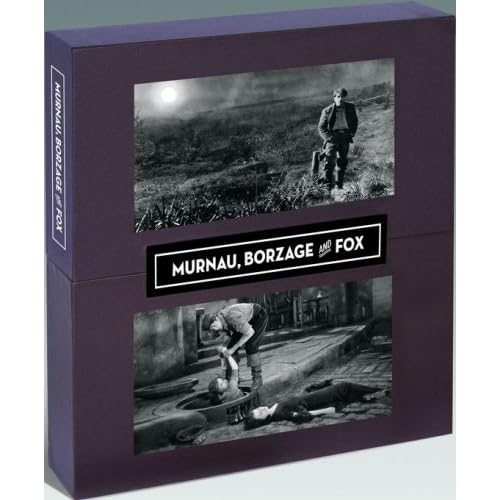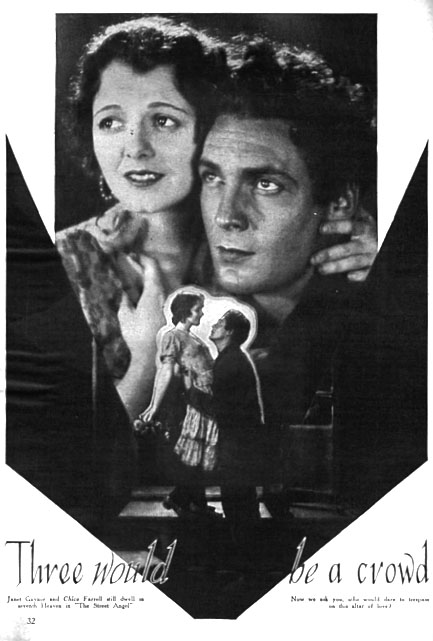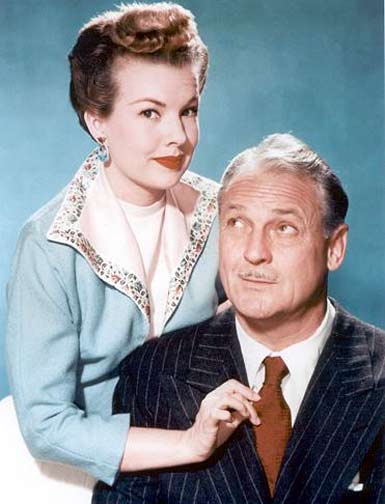mike
Call Me a Cab
- Messages
- 2,000
- Location
- HOME - NYC
Anyone? ...Anyone?
I was first introduced to him by the Museum of Moving Image here in Long Island City, Queens. They ran a film festival of his work a few years ago. I was surprised at the scope and grandeur of his work considering he was a name that barely registered to me, even though I grow up a huge silent and golden era film fanatic. In hindsight, I realize it's because with the exception of perhaps A Farewell to Arms, most of his classic films have never been commercially available!
I was lucky enough to see a screening of the River (or as complete a version as was available at that time.) I was really surprised by the film; the level of romantic, realistic intensity was able to transcend that the film today only exists in a fragmented form. Even as a pieced together tale, it remains gripping. It is boiled down humanity on display, set in a raw wilderness but shot with the utmost level of artistry and craft.
His best work comes at a point of virtual cinematic perfection, the last years of the silent era. FW Murnau's Sunrise is often considered one of the best films ever made, even when the mainstream treats the silent era as a second class (if not nonexistent) citizen. But Frank Borzage's work at this time shows that Murnau was not working in a vacuum. Both directors created at Fox Films, and you can see by the end results, that they compared notes if not inspired each other. The aesthetic created in Sunrise, the dreamlike qualities paired with truly realistic performances, can also be seen as the defining elements of a Borzage film.
During my time living in Los Angeles, I was fortunate enough to work in the 20th Century Fox Archives, which was an umbrella that included their preservation department. I was lucky enough to view copies of some of his most famous films including Seventh Heaven and Street Angel. I often raised questions about why the Home Entertainment Department hadn't made any of his films available for release. At the time, they were preparing the John Ford at Fox Box Set and it turned out to be one of the seasons best sellers, which opened the door to the possibility of a Frank Borzage collection. This month a collection of Frank Borzage and FW Murnau films was released celebrating the work they created while working under William Fox.
http://www.amazon.com/Murnau-Borzage-Fox-Box-Set/dp/B001EZE5E2/ref=cm_cr_pr_pb_t

While the collection is very expensive for the work of a relatively unknown a filmmaker, I can't suggest searching out the films in this set enough! Perhaps netflix will offer the titles separately or Fox will issue them in smaller subsets in the soon future.
Anyone Borzage fans here on the Lounge?
I was first introduced to him by the Museum of Moving Image here in Long Island City, Queens. They ran a film festival of his work a few years ago. I was surprised at the scope and grandeur of his work considering he was a name that barely registered to me, even though I grow up a huge silent and golden era film fanatic. In hindsight, I realize it's because with the exception of perhaps A Farewell to Arms, most of his classic films have never been commercially available!
I was lucky enough to see a screening of the River (or as complete a version as was available at that time.) I was really surprised by the film; the level of romantic, realistic intensity was able to transcend that the film today only exists in a fragmented form. Even as a pieced together tale, it remains gripping. It is boiled down humanity on display, set in a raw wilderness but shot with the utmost level of artistry and craft.
His best work comes at a point of virtual cinematic perfection, the last years of the silent era. FW Murnau's Sunrise is often considered one of the best films ever made, even when the mainstream treats the silent era as a second class (if not nonexistent) citizen. But Frank Borzage's work at this time shows that Murnau was not working in a vacuum. Both directors created at Fox Films, and you can see by the end results, that they compared notes if not inspired each other. The aesthetic created in Sunrise, the dreamlike qualities paired with truly realistic performances, can also be seen as the defining elements of a Borzage film.
During my time living in Los Angeles, I was fortunate enough to work in the 20th Century Fox Archives, which was an umbrella that included their preservation department. I was lucky enough to view copies of some of his most famous films including Seventh Heaven and Street Angel. I often raised questions about why the Home Entertainment Department hadn't made any of his films available for release. At the time, they were preparing the John Ford at Fox Box Set and it turned out to be one of the seasons best sellers, which opened the door to the possibility of a Frank Borzage collection. This month a collection of Frank Borzage and FW Murnau films was released celebrating the work they created while working under William Fox.
http://www.amazon.com/Murnau-Borzage-Fox-Box-Set/dp/B001EZE5E2/ref=cm_cr_pr_pb_t

While the collection is very expensive for the work of a relatively unknown a filmmaker, I can't suggest searching out the films in this set enough! Perhaps netflix will offer the titles separately or Fox will issue them in smaller subsets in the soon future.
Anyone Borzage fans here on the Lounge?
















